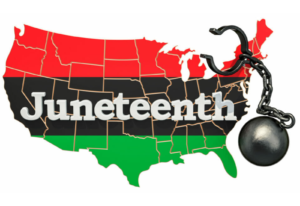Cannabis businesses are unlike typical businesses in large part due to the significant tension between federal and state laws and regulations. This tension creates some uncertainty for every licensed cannabis business and every other business and individual involved in the marketplace: owners, financiers, employees, ancillary service providers, and even accountants and attorneys.
Overview of Buying a Cannabis Business
How Soon Can We Close?
The state and federal interplay uncertainty and the highly regulated nature of the cannabis marketplace create an often slow-moving environment, which is something first time prospective buyers and their attorneys may not be expecting. Depending on the state, a typical acquisition could range from as few as three months to as many as twelve months after the buyer and seller are prepared to close the transaction.
A closing could occur on the shorter end of the time range where the buyer already owns a license in the target market and is merely expanding its market presence by acquiring another license or licensed business.
Why Do Transactions Fall Apart?
Transactions that stretch to a year and beyond often occur due to one or more of the following: (a) significant undisclosed regulatory violations in the target company; (b) a pattern of regulatory violations in the target company; (c) a pattern of regulatory violations in the buyer company; or (d) buyer’s inability to satisfy the state’s licensing requirements, including providing satisfactory proof of funds from legal or permitted sources.
Deal Structure Permutations
This uncertainty regarding the closing timeline rarely slows down a motivated buyer, and the industry players and attorneys routinely adapt transactions to fit the facts of the acquisition and the needs of the parties.
Generally, in an asset purchase, this means structuring the transaction so that at closing the buyer can take immediate possession of all business assets except the license, which will be retained by the seller until the governing regulatory body has approved the license transfer.
In a stock or membership interest acquisition, this means that all assets other than the license will be transferred to another seller entity, and the buyer will first acquire the ownership interests of the non-licensed target company and then acquire the licensed entity after regulatory approval.
Transaction attorneys counseling buyers and sellers should prepare their clients for lengthy transaction timelines and a significantly higher number of transaction agreements than a typical transaction. Buyers and sellers should expect their operational and transactional costs will increase in proportion to the complexity of the transaction.
The Regulatory Environment
Navigating Through Federal Illegality
Marijuana remains a Schedule I controlled substance under the U.S. Federal Controlled Substances Act. Many states have enacted legislation and created regulatory frameworks that permit the cultivation, processing, manufacturing, and retail sale of marijuana within their borders.
However, the acquisition agreements, beginning with the term sheet (or letter of intent) and the attorney firm’s engagement letter should clearly acknowledge the illegality of marijuana according to federal law. They should also include provisions relating to future positive or negative changes in applicable laws and regulations (and their uneven enforcement) that may frustrate the entire purpose of the transaction.
Are You Dealing with Marijuana or Hemp?
The 2018 Agricultural Improvement Act (the “2018 Farm Bill”) removed “hemp” from the definition of “marijuana,” and now hemp can generally be considered a commodity much like any other agricultural crop. However, due to hemp’s affinity with marijuana, the 2018 Farm Bill also directed the USDA to develop a national hemp regulatory structure, with each state and tribe being given the leeway to develop its own hemp cultivation plan for approval by the USDA.
Because the term cannabis can refer to both marijuana and hemp, it is important to understand whether the acquisition target deals with marijuana, hemp, or both. Typically, a target company will specialize in one or the other.
Although a hemp acquisition is significantly less problematic than a marijuana acquisition, many of the considerations in this blog series should also be considered in a hemp acquisition to ensure that the target company’s lines of business are clearly delineated and adhered to. We will deal more with this in our posts on the due diligence period and in the representations and warranties sections in the transaction documents.
Can You Really Buy That Company?
Next, the buyer needs to determine what type of cannabis licensure is being acquired. Some states permit vertical integration within the industry – from plant genetics through to retail sales – while other states, like Washington, prohibit some or all vertical integration.
Other states may, for the purposes of promoting social equity or avoiding market dominance by a single company or a small group of companies (antitrust concerns), have limits on the number of licenses that can be owned. These states may also limit the types of contracts that can be entered into among licensed companies to try to promote a more free and full market environment among licensed companies.
Potential acquirers from different jurisdictions should become aware of the regulatory limitations in the target state. State laws and regulatory regimes differ significantly across state lines, and you cannot reasonably determine the contours of a state’s marijuana marketplace just by looking at the state’s political environment.
Hiring Your Lawyer
Why Hire an Attorney?
In my time representing clients in the cannabis industry, I have learned that cannabis company owners can be, on balance, less willing to engage attorneys to help them with their work than clients in other industries like our international practice. I am not sure whether that is because of the relative “simplicity” compared to international transactions or whether cannabis owners generally distrust lawyers or do not see the value in us. The last reason is often why clients who have been burned once in a business deal make great clients: they know what problems their attorneys can help them avoid and they can put a price tag on that value.
In a transaction, sellers are generally less willing to hire an attorney than buyers because sellers are more concerned with getting paid, while buyers are beginning to navigate a whole host of potential business issues, including many of seller’s legacy business issues the buyer will not know about.
What’s in the Engagement Letter?
When hiring your cannabis attorney, you should expect to see an engagement letter with language like the below capitalized text. Cannabis work is still very nebulous, so your attorney’s engagement letter will probably seek to protect their firm to the greatest extent possible. Most cannabis engagement letters will contain additional disclaimer language to protect the law firm from future malpractice claims and ensure that you as the client have reasonable expectations, and it will probably be in all caps:
WE CANNOT GUARANTEE YOUR ABILITY TO RECEIVE A MARIJUANA-RELATED BUSINESS LICENSE IN ANY WAY.
POSSESSING, USING, CULTIVATING, MANUFACTURING, PROCESSING, DISTRIBUTING, AND SELLING MARIJUANA ARE ALL FEDERAL CRIMES. NO LEGAL ADVICE WE GIVE YOU IS INTENDED TO ASSIST YOU IN VIOLATING ANY LAW OR AVOIDING DETECTION OR PROSECUTION OF SUCH VIOLATIONS.
OUR ADVICE IS INTENDED SOLELY TO ASSIST YOU IN COMPLYING WITH STATE CANNABIS LAWS. THE ILLEGAL STATUS OF MARIJUANA UNDER FEDERAL LAW MAY IMPACT THE ATTORNEY-CLIENT RELATIONSHIP, THE ATTORNEY-CLIENT PRIVILEGE, AND THE CONFIDENTIALITY OF INFORMATION PROVIDED.
How Much of Your Attorney’s Advice Should You Follow?
As with all transactions, your legal counsel is considering their ethical obligations in advising you to comply with applicable laws and regulations. No ethical attorney will ever advise you to break applicable state laws and regulations (but federal and state law conflicts are another thing).
Your counsel must be familiar with the applicable regulatory structure and will likely document all guidance provided to you regarding the regulatory environment either through regular emails and memos to you or to your counsel’s own files. This especially includes instances where you want to toe the legal or regulatory line, even where your attorney personally feels like some laws and regulations are nonsensical.
What if the Seller Doesn’t Have a Lawyer?
Some cannabis company owners are inherently suspicious of legal counsel, so it is not uncommon for you as the buyer to be the only party engaging counsel in the transaction. If the seller will not be hiring legal counsel, then you and your attorney will need to determine whether your attorney should engage directly with the seller or whether all negotiations should remain at the buyer and seller level. This is generally a strategic decision about what the seller will expect and be comfortable with.
If your attorney will be the only attorney involved, then you should plan on paying additional legal costs associated with your attorney performing all of the transactional work without seller’s counsel involved. You may want to address this added expense with the seller and increase the purchase price accordingly. You also need to determine whether you, the seller, or your attorney will take on the additional work of filling out license transfer forms and dealing with your state regulators.
You may want your attorney to explain contract provisions generally to the seller, but your counsel may be hesitant to do so and will at least clarify that they will not be providing legal advice to the seller when doing so.
Employing the lone attorney in the transaction is not all bad. When seller does not engage counsel, the transaction often moves forward faster, with the initial closing occurring quickly after the initial drafts are provided to the seller. Counsel will ensure that the transaction documents include representations by the seller that the seller has had ample time and opportunity to engage its own counsel.
Working With Cannabis Brokers
Cannabis business brokers that provide general brokerage services (connecting buyers and sellers) are common in the industry, but like most industries, broker competence and experience vary significantly. There are specialized cannabis business brokerage firms, some of which also provide valuation services, but counsel will most likely run across real estate brokers and non-cannabis brokers who will know little about the industry and contribute little to the transaction other than pushing to close as quickly as possible.
Even developed cannabis markets like Washington, Oregon, and California do not have licensed cannabis brokers. In my opinion, we will probably never see any brokers who need to be licensed in order to deal in cannabis assets.
Much like the real estate market, brokers can represent a buyer or a seller or act as a dual agent with written consent from both parties. The fee arrangement typically mirrors the assets being sold: a real-estate centric deal with a real estate agent involved will be in the 6% total commission range, while a business broker will typically require a 10% commission, with payment either split between the parties (in a real-estate centric transaction) or paid entirely by the seller (in a business-focused transaction) unless negotiated otherwise.
If a broker is involved in the transaction, you and your legal counsel will need to evaluate the broker’s competence and qualifications before allowing the broker to facilitate the due diligence process or any part of the transaction. If the broker is not competent, counsel should advise the buyer that the transaction will proceed more efficiently without the broker’s material involvement in the due diligence.
As a great rule of thumb, you should never let your broker provide the contract that will be used for the transaction. Even outside the cannabis context, brokers who choose to use the “industry standard” form contracts tend to end up with a slew of amendments that do not always make sense and never contribute to clarity. I am not saying this just as an experienced lawyer; I’m saying this as a dispassionate human being who extremely dislikes inefficiencies and disorder, especially where significant legal rights and sums of money are involved.
Almost as a rule, counsel should seek to modify or entirely replace existing broker-facilitated transaction contracts with counsel’s own contracts as soon as possible, even in a real-estate centric transaction. Very few broker-preferred contracts (even ones they have used in “dozens of deals” will contain the level of detail and protection you will want in the transaction documents.
Lastly, even though I generally meet brokers with an upraised eyebrow, your legal counsel should never advise you to circumvent your contractual obligations to your broker. It’s usually not legally justifiable, and it’s not the right decision, even if you balk at the broker’s take-home percentage of the transaction.
Structuring the Purchase
Acquisitions of cannabis businesses are typically structured as either a purchase of (1) assets or (2) equity interests (including a merger scenario), with an initial closing and a final closing. Due to potentially extensive known and unknown liabilities in the target company, asset purchases are the rule unless a cannabis license is not permitted to be assigned or assumed by a buyer, as is the case in California, where the purchase of equity interests is almost universally used.
The Pace of Proceeding to Close
The highly regulated nature of the cannabis marketplace creates an often slow-moving environment for transactions, which first time buyers (or first time sellers) and their counsel may not expect. Depending on the state, a typical acquisition timeline may range from as few as two months to as many as 12 months after the buyer and seller are prepared to close the transaction.
An acquisition can close on the shorter end of the time range if the buyer already owns a license in the target market and is merely expanding its market presence by acquiring another license. Transactions that stretch to a year and beyond often involve one or more of the following:
- Significant undisclosed regulatory violations in the target company.
- A pattern of regulatory violations in the target company.
- A pattern of regulatory violations in the buyer company or its key personnel.
- The buyer’s inability to satisfy the state’s licensing requirements, including providing satisfactory proof of funds from legal or permitted sources.
Why Two Closings?
A cannabis transaction will also often have two closings for regulatory reasons. Although some parties may prefer to wait until the entire transaction has been approved by the state regulatory body to close a deal, most buyers and sellers are anxious to complete as much of the transaction as possible as soon as possible.
Where the closing of the acquisition will be split into two components, the first closing will occur after:
- Due diligence is completed.
- The transaction documents are fully negotiated and drafted.
- The buyer’s financing is arranged.
In the initial closing, the seller will transfer to the buyer as many of the seller’s business assets as permitted without regulatory approval, generally leaving only the license or the licensed entity to be transferred at the second closing.
The purpose of this structure is to provide the buyer all of the financial benefit and a significant level of the responsibility for operating the business from the initial closing. Once the second and final closing occurs, often months after the initial closing, the buyer obtains all the benefits and responsibilities of owning the acquired business retroactive to the date of the initial closing. This is all described in the transaction agreements, often requiring a spreadsheet to lay out monthly expenditures and expected revenue to be settled up at the second closing.
This uncertainty regarding the closing timeline, however, rarely slows down a motivated buyer and seller, and the industry players and their counsel routinely adapt transactions to fit the facts of a particular acquisition.

























